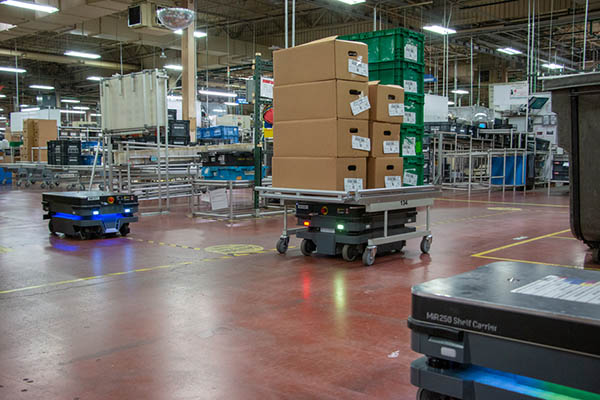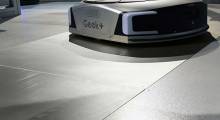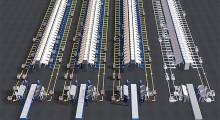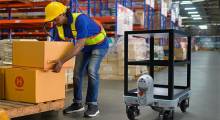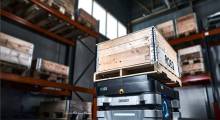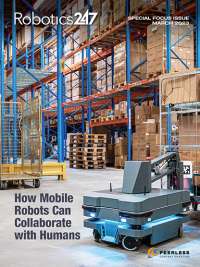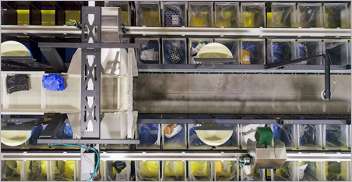Automotive components supplier DENSO Corp. needed to improve efficiency and ergonomics, as well as keep up employee morale in a tight labor market. It deployed six MiR250 robots from Mobile Industrial Robots ApS in its 800,000-sq.-ft. powertrain component production facility in Athens, Tenn.
Since deploying its first MiR autonomous mobile robot (AMR) in 2020, DENSO has successfully executed more than 500,000 missions and realized a return on investment (ROI) in less than a year, according to a case study from Mobile Industrial Robots. It has also recognized an ongoing need for more AMRs for additional logistics applications.
Founded in 2013, Mobile Industrial Robots (MiR) develops and manufactures AMRs to automate internal logistics and optimize materials handling. The Odense, Denmark-based company said both small and midsize companies and large enterprises in industries ranging from manufacturing and logistics to healthcare. Teradyne Inc. acquired MiR in 2018 and recently combined it with AutoGuide Mobile Robots.
DENSO deploys growing MiR fleet
DENSO is one of Mobile Industrial Robots' largest global customers, running MiR AMRs in two other U.S. locations, three facilities in Europe, and two in Asia. The company chose AMRs over automated guided vehicles (AGVs) because they can navigate on their own without the need for costly infrastructure built into the factory floor, according to Travis Olinger, a logistics and automation engineer at DENSO.
“Autonomous mobile robots were an obvious choice for our extremely dynamic environment, which we knew would require the robots to make regular route changes,” he said. “After testing AMRs from a few different vendors, we realized that MiR robots bring significant advantages in flexibility, safety and user-friendliness.”
“MiR stood out from the ability to use REST API calls to communicate with the robots, the intuitive nature of the MiR Fleet software, the ease of mapping, the ease of mission creation, and the ease of changing locations,” recalled Olinger. “MiR was just extremely intuitive compared to the other platforms we looked at.”
Olinger said the MiR250 robots were particularly compelling because of their 2 m/sec. (4.4 mph) speed, their payload capacity of 250 kg (550 lb.) to handle heavy metal parts, and their ability to navigate narrow spaces.
Standardizing on the MiR250 shelf-lifter that pulls carts from MiR partner ROEQ allowed DENSO to expand quickly into other areas using the same cart base and customizing it for each use. As the engineering team receives additional requests for automated conveyance, they can easily design racks around the carts, helping to free up space, increase flexibility, and gain advantages more quickly.
AMRs improve employee morale, retention
DENSO employees were walking up to 12 miles per day moving material between production areas and the warehouse, spending about 60% of their time just pushing carts, said Olinger. The initial pilot program to automate this conveyance with AMRs eliminated this manual task, allowing six workers to transition to more value-added work, he noted.
The project quickly expanded to bring components directly to line-side production for just-in-time efficiencies. Support for the robots has grown quickly among employees, with workers in other departments requesting robot support for transporting goods such as maintenance supplies and spare parts. DENSO recently purchased five MiR500 robots for future conveyance projects that require heavier payloads.
“Automating these repetitive and strenuous tasks with new technologies that make jobs easier helped us retain our existing labor force,” Olinger said. “We had plenty of open jobs for value-added activities within the production environment. We wanted to pay people to make parts for us that makes us money, and not pay them to move parts that cost us money.”
Article topics
Email Sign Up

